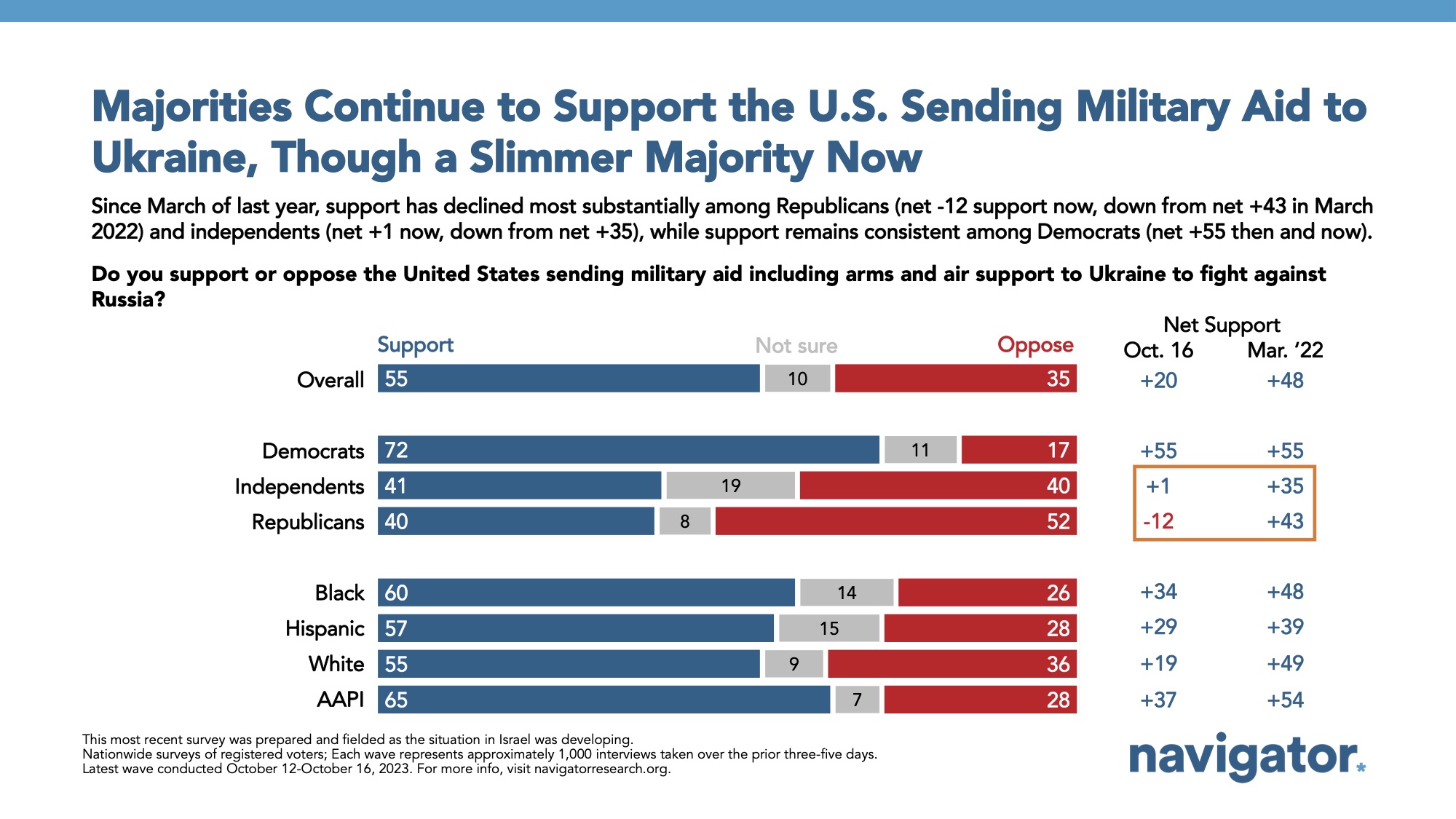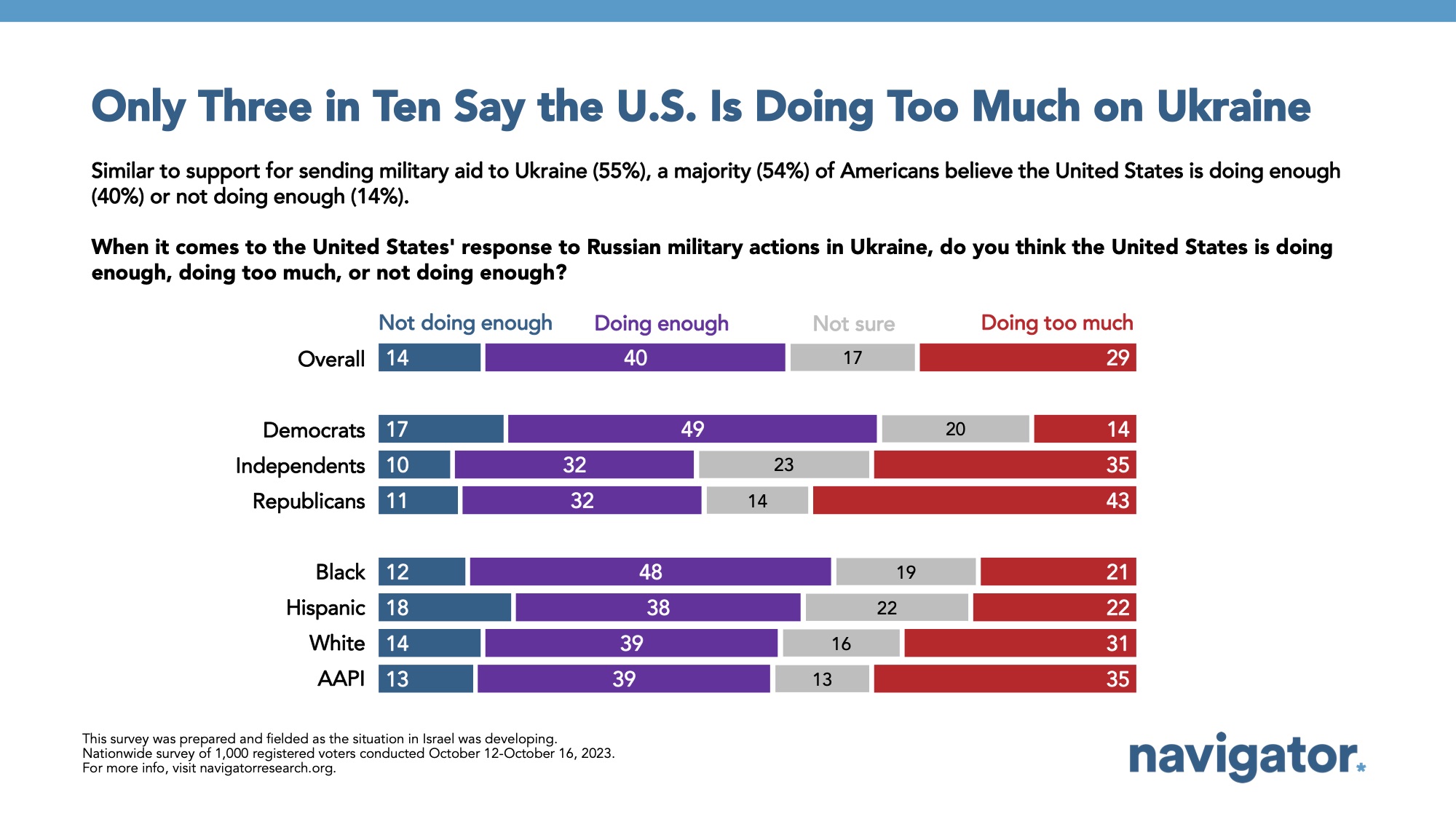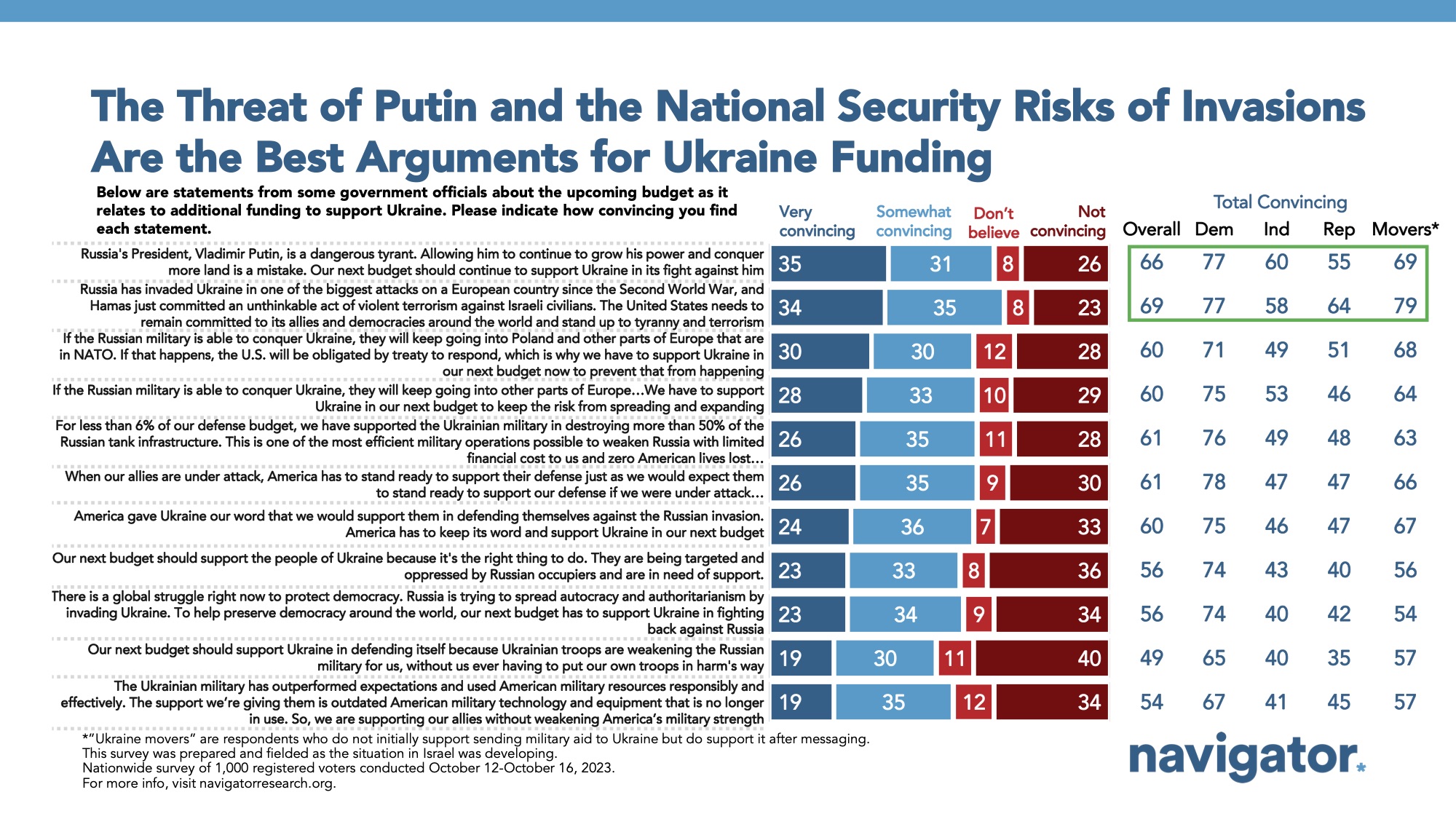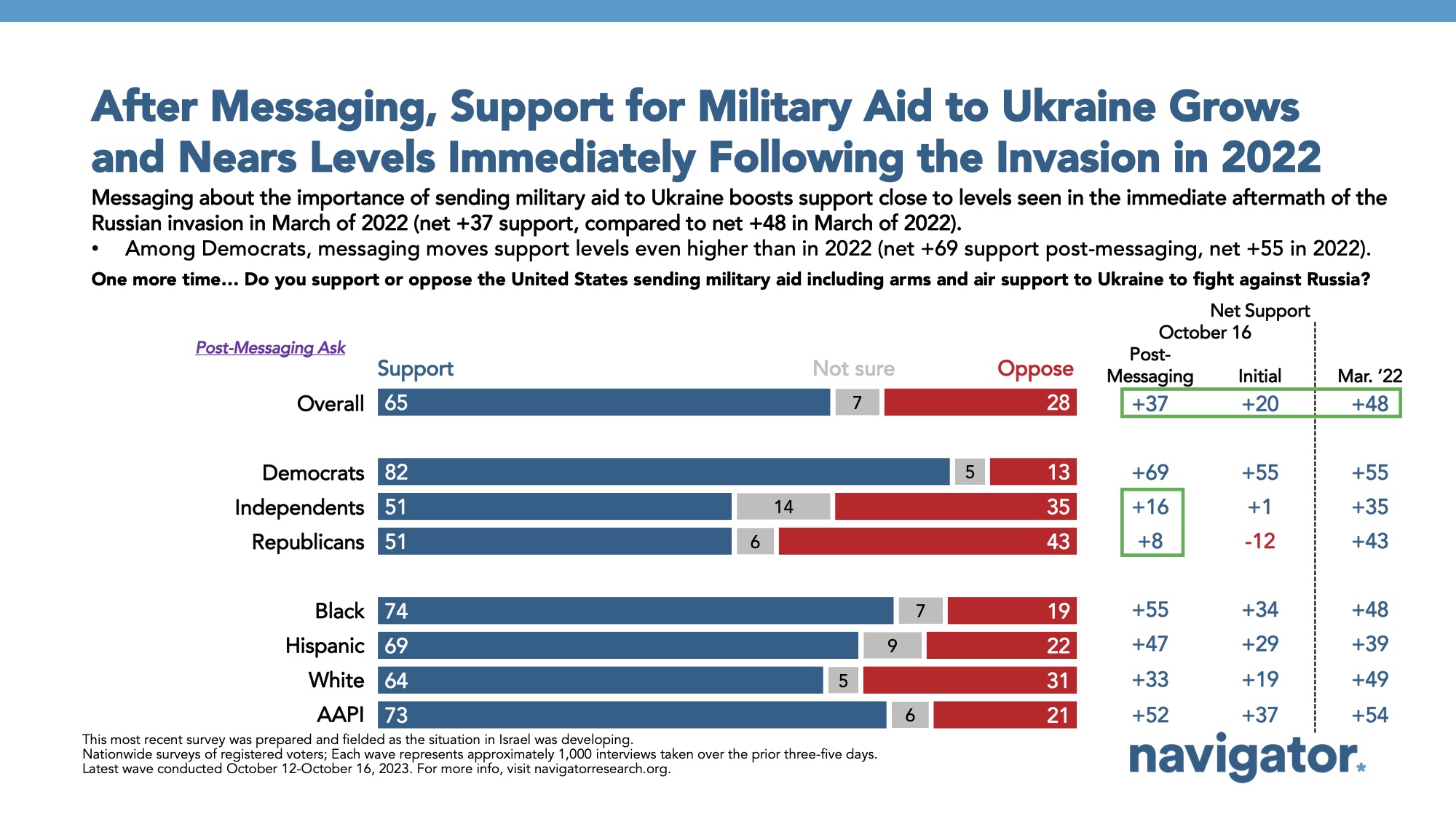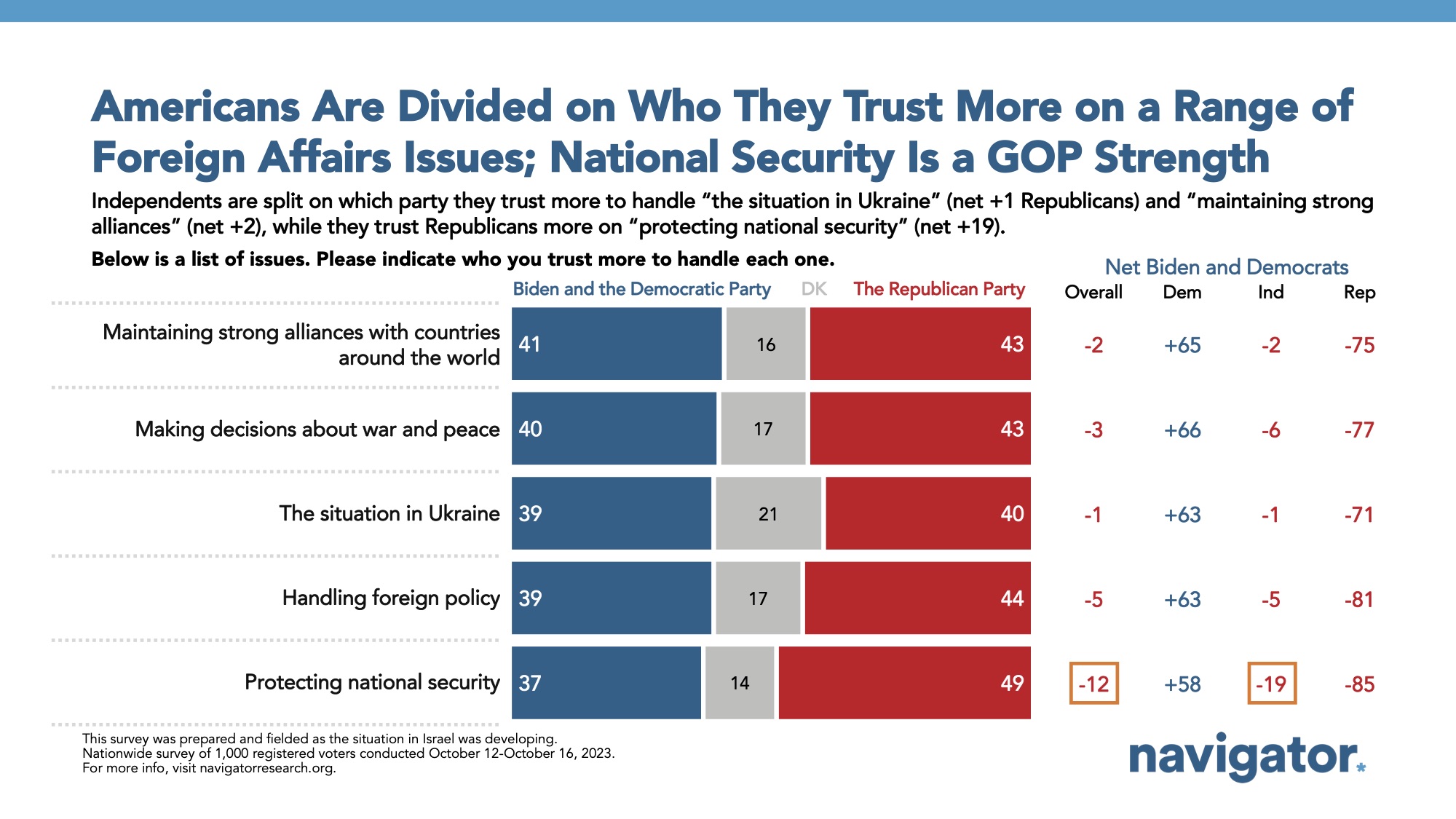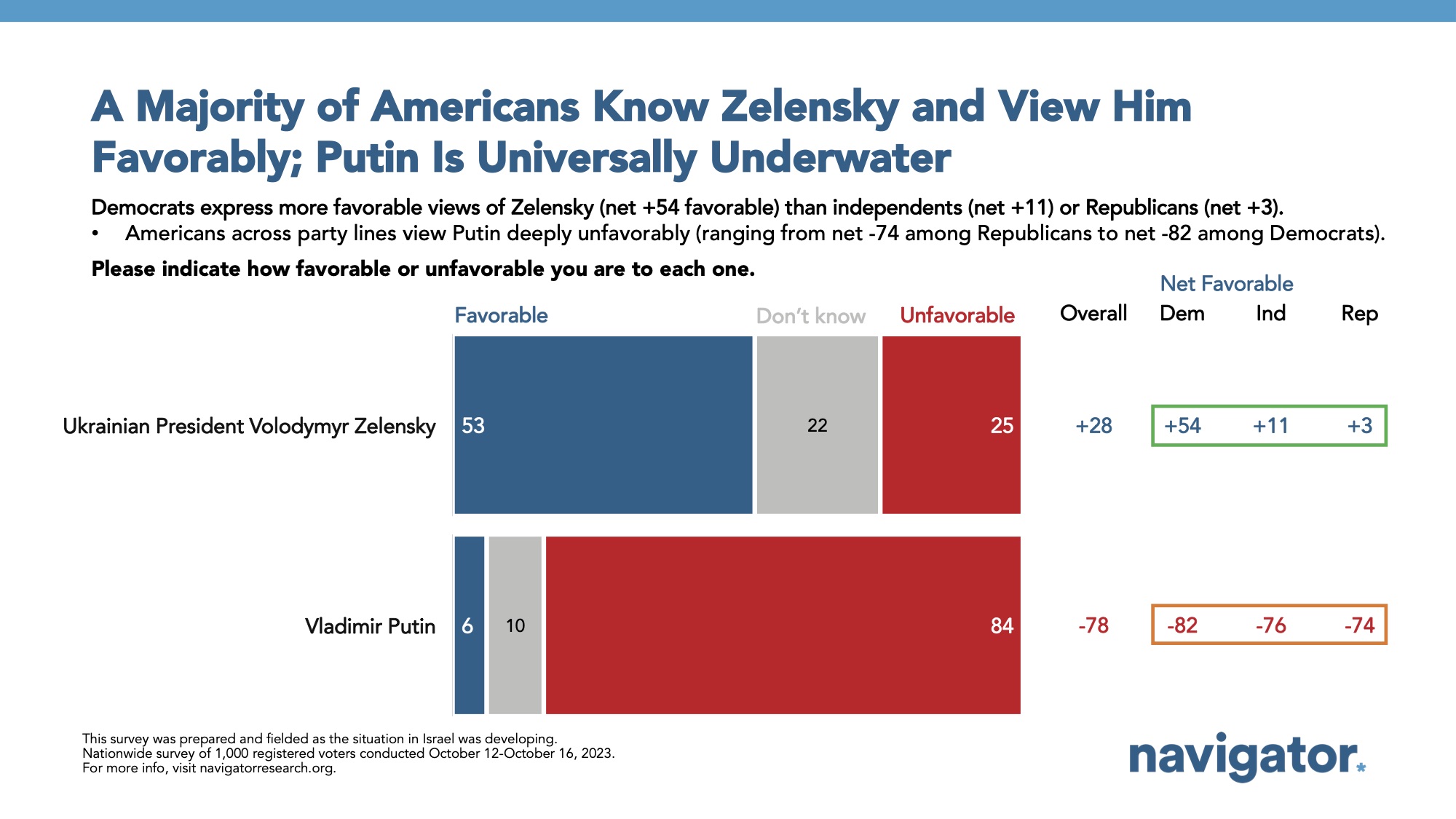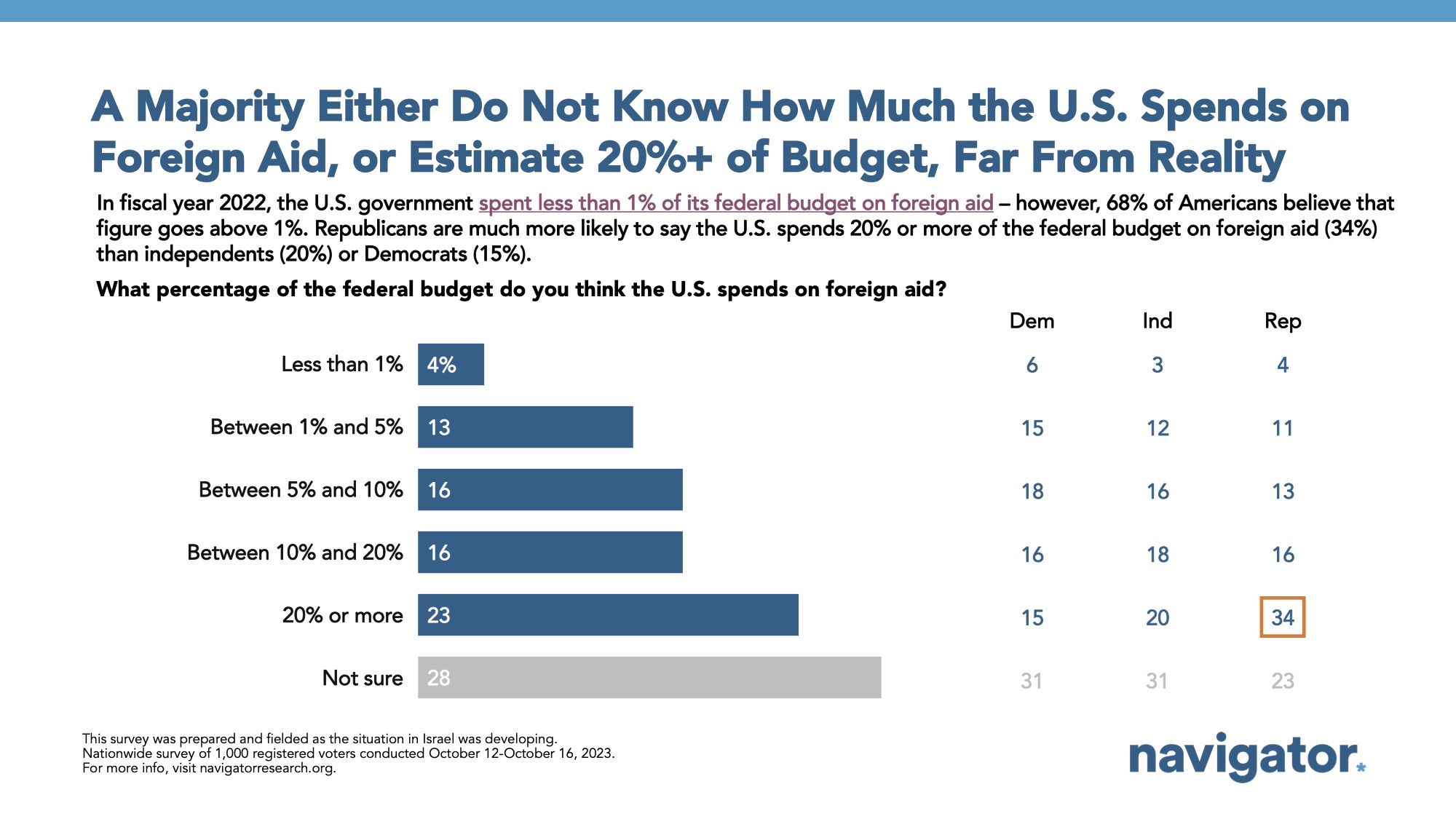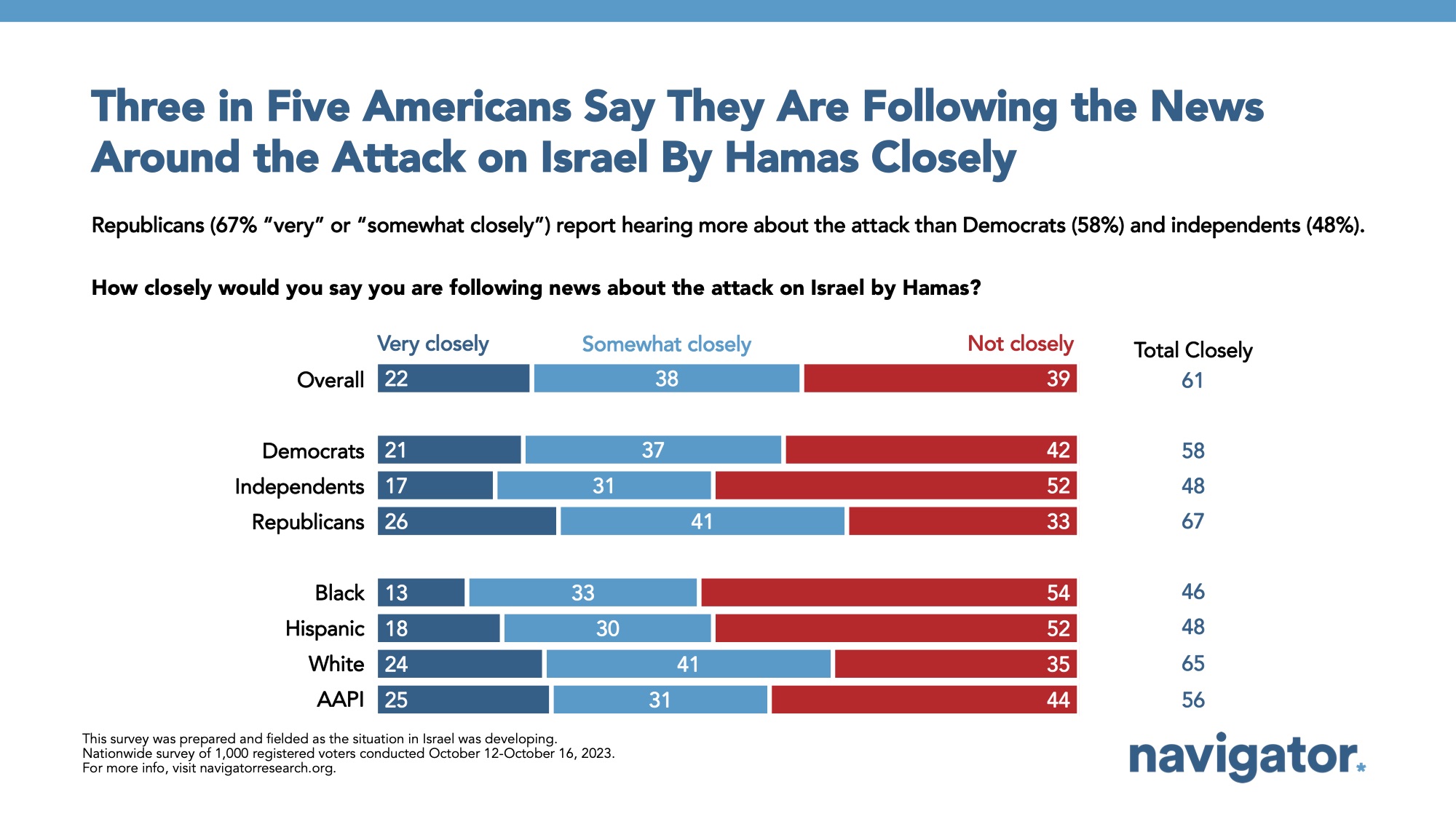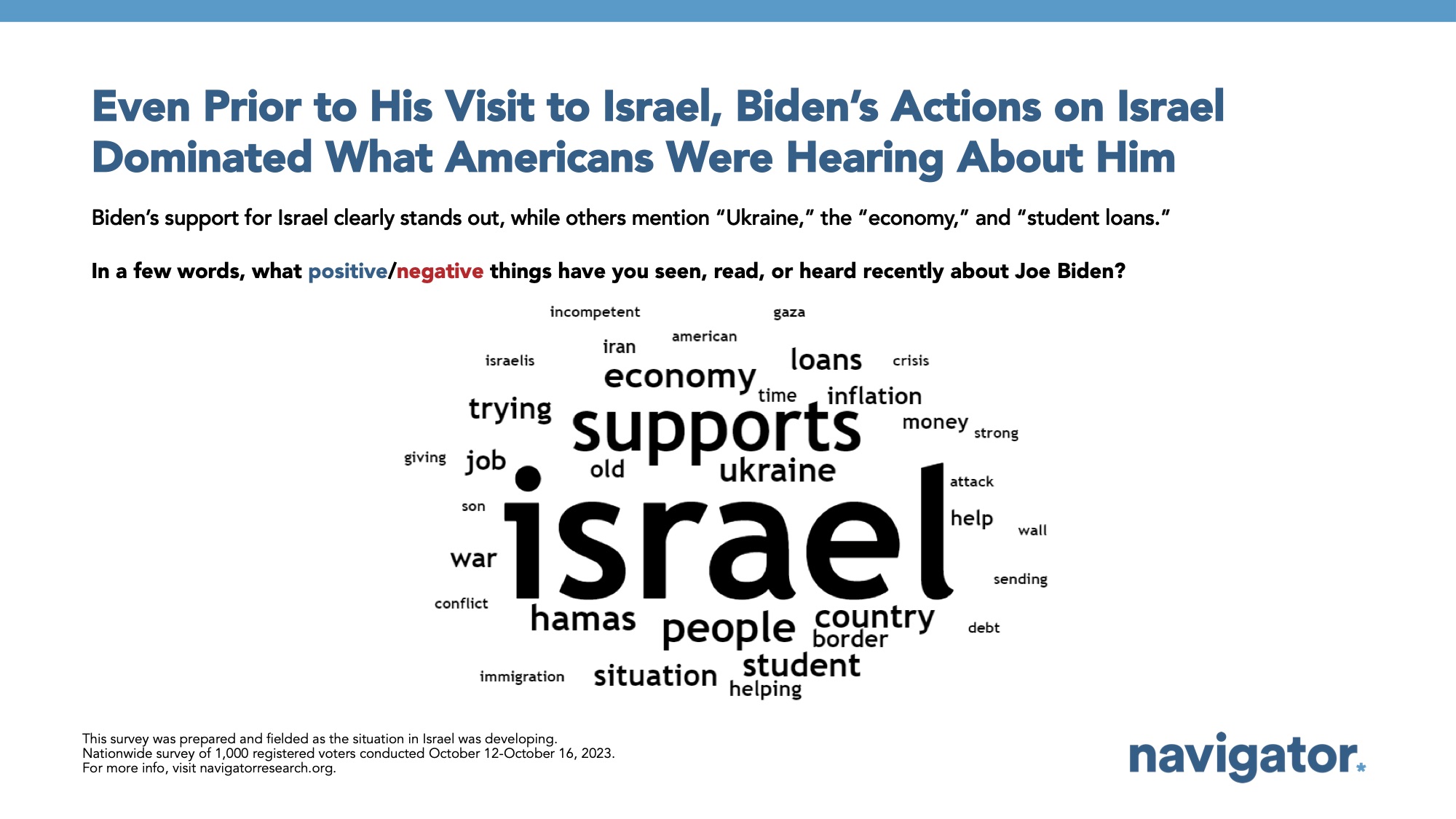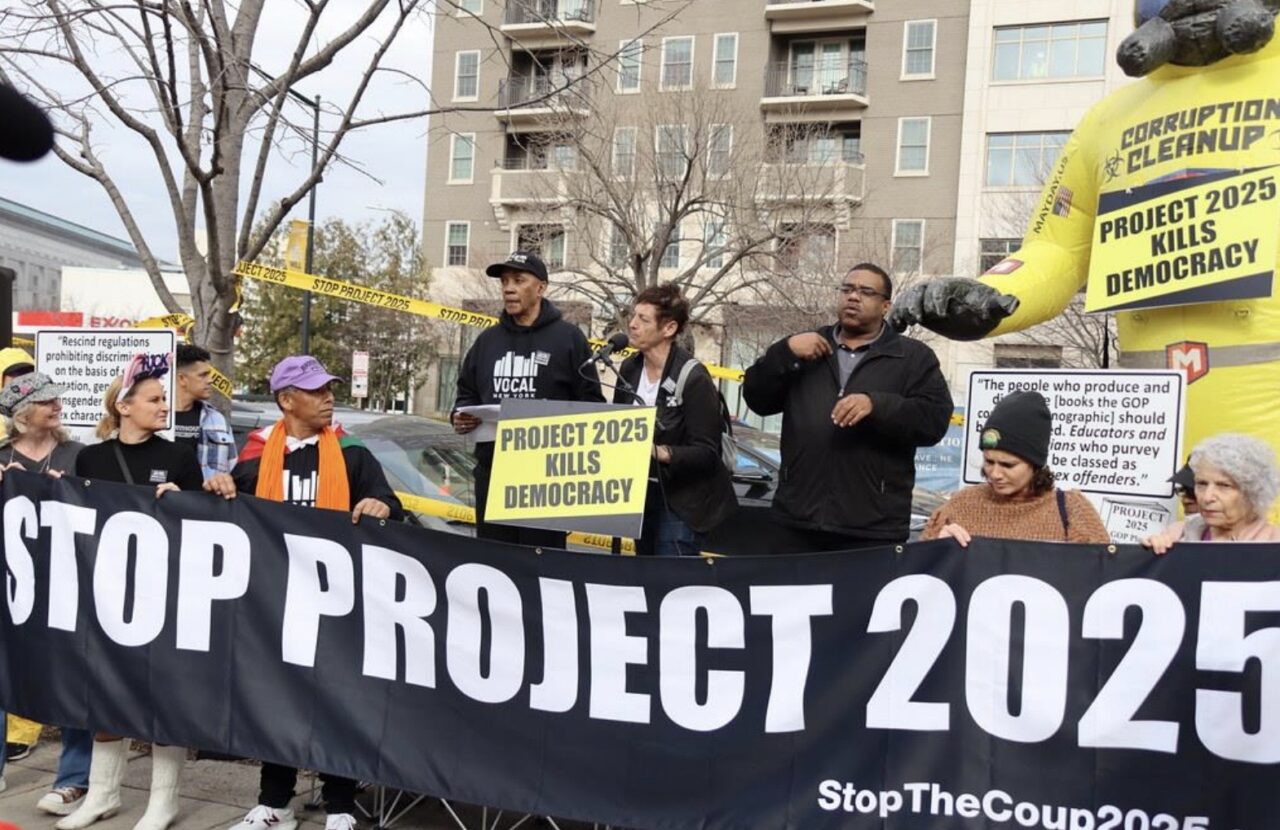Poll: Ukraine and Foreign Affairs
This Navigator Research report contains polling data on Americans’ latest perceptions and awareness of the political parties when it comes to foreign affairs issues, tracking on support for the United States providing military aid to Ukraine, and the most effective ways to communicate about the importance of supporting Ukraine with aid.
*Note: This survey was prepared and fielded as the situation in Israel was developing.
A majority of Americans continue to support military aid to Ukraine, and a plurality believe the U.S. is doing enough in response to Russian military aggression in Ukraine.
By a 20-point margin, a majority of Americans continue to want military support for Ukraine (55 percent support – 35 percent oppose), including more than seven in ten Democrats (net +55; 72 percent support – 17 percent oppose), an even split among independents (net +1; 41 percent support – 35 percent oppose), and two in five Republicans (net -12; 40 percent support – 52 percent oppose). Similarly, 54 percent of Americans also believe the United States is either doing enough in response to Russian military actions in Ukraine (40 percent) or believe that it is not doing enough (14 percent), compared to just 29 percent believe the United States is doing too much in response.
- When presented with a series of statements regarding the additional funding to support Ukraine, Americans found the following two statements to be most convincing: “Russia has invaded Ukraine in one of the biggest attacks on a European country since the Second World War, and Hamas just committed an unthinkable act of violent terrorism against Israeli civilians… the United States needs to remain committed to its allies and democracies around the world and stand up to tyranny and terrorism” (69 percent convincing, including 58 percent of independents and 64 percent of Republicans); and, “Russia’s President, Vladimir Putin, is a dangerous tyrant… allowing him to continue to grow his power and conquer more land is a mistake… our next budget should continue to support Ukraine in its fight against him” (66 percent convincing, including 60 percent of independents and 55 percent of Republicans).
- After messaging, the margin of support for providing military support to Ukraine increased by a net 17 points (from net +20 to net +37; 65 percent support – 28 percent oppose). This post-messaging result mirrors the topline level of support for the United States providing military aid for Ukraine in Navigator’s survey following the initial Russian invasion Ukraine in March 2022 (68 percent support).
Americans are divided on who they trust to handle a range of foreign affairs issues.
Americans are roughly split on whether they trust Republicans or Biden and Democrats more on a number of areas related to foreign policy, including maintaining strong alliances with countries around the world (net -2; 41 percent Biden/Democrats – 43 percent Republicans – 16 percent unsure), “making decisions about war and peace” (net -3; 40 percent Biden/Democrats – 43 percent Republicans), and “the situation in Ukraine” (net -1; 39 percent Biden/Democrats – 40 percent Republicans). At the same time, a narrow plurality of Americans believe President Biden has made the right decisions when it has come to the situation in Ukraine (net +5; 44 percent right decisions – 39 percent wrong decisions).
- Americans overwhelmingly view Ukrainian President Volodymyr Zelensky favorably (net +28; 53 percent favorable – 25 percent unfavorable); by contrast, Americans view Vladimir Putin overwhelmingly unfavorably (net -78; 6 percent favorable – 84 percent unfavorable).
Despite issues of foreign affairs dominating the news cycles, misinformation remains prevalent regarding the U.S. budget and foreign aid.
About one in four say the U.S. spends 20 percent or more of the U.S. budget on foreign aid (23 percent), and close to half believe the U.S. spends more than 1 percent of the budget on foreign aid (45 percent). An additional 28 percent were unsure. In reality, less than 1 percent of the budget is dedicated to foreign aid and only 4 percent of Americans were aware of it.
As the situation in Israel continues to unfold, most Americans say they are following the news surrounding the conflict closely.
Three in five say they are following the attack on Israel by Hamas closely (61 percent), including 67 percent of Republicans, 58 percent of Democrats, and nearly half of independents (48 percent). This survey — which fielded entirely before President Biden’s trip to visit Israel earlier this week — found that news about his actions on Israel were dominating the conversation around him. When asked to describe in a few words what news Americans had heard, seen, or read recently about Biden, “Israel” was the dominant topic.
About The Study
Global Strategy Group conducted public opinion surveys among a sample of 1,000 registered voters from October 12-October 16, 2023. 99 additional interviews were conducted among Hispanic voters. 74 additional interviews were conducted among Asian American and Pacific Islander voters. 100 additional interviews were conducted among African American voters. 100 additional interviews were conducted among independent voters. The survey was conducted online, recruiting respondents from an opt-in online panel vendor. Respondents were verified against a voter file and special care was taken to ensure the demographic composition of our sample matched that of the national registered voter population across a variety of demographic variables.

